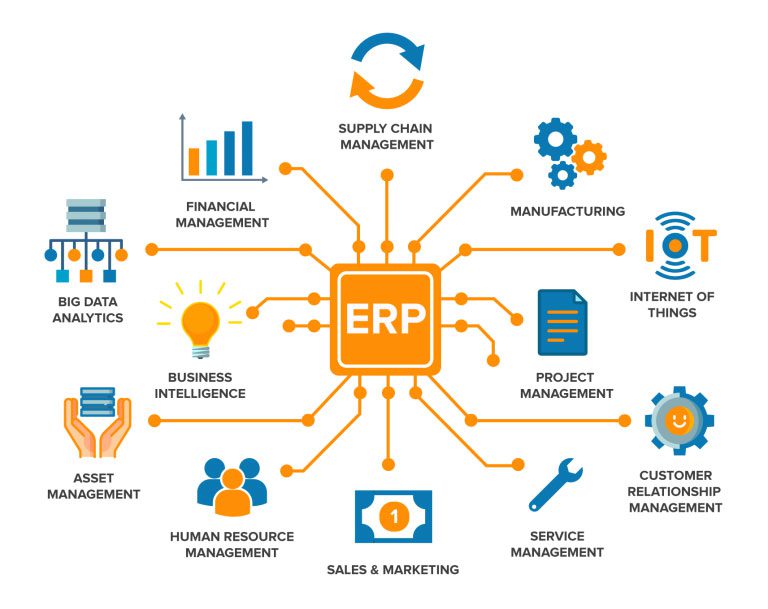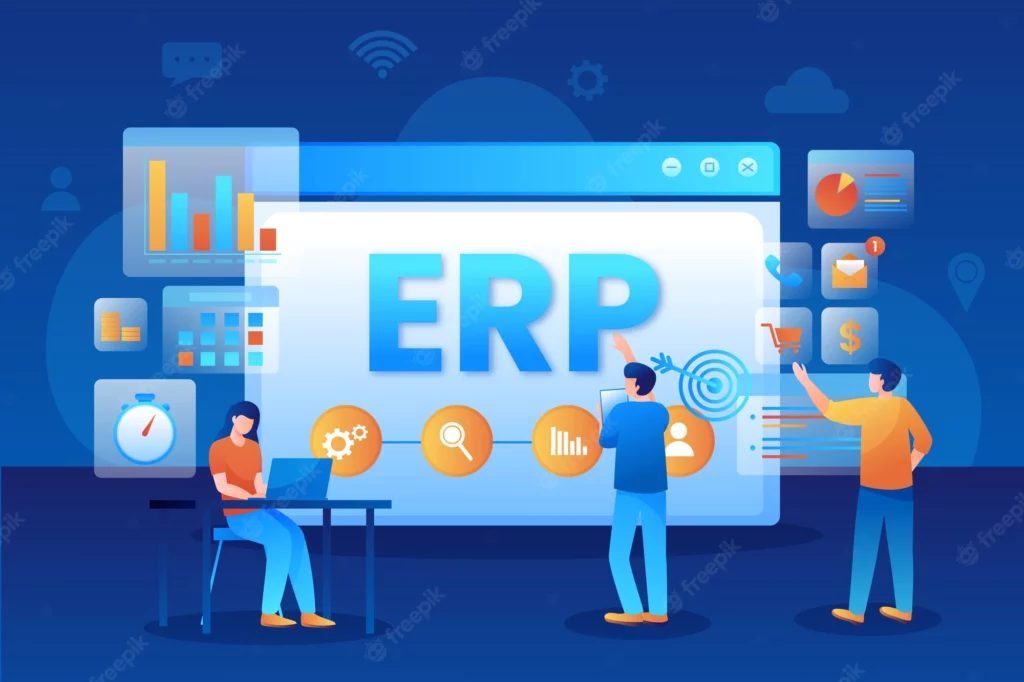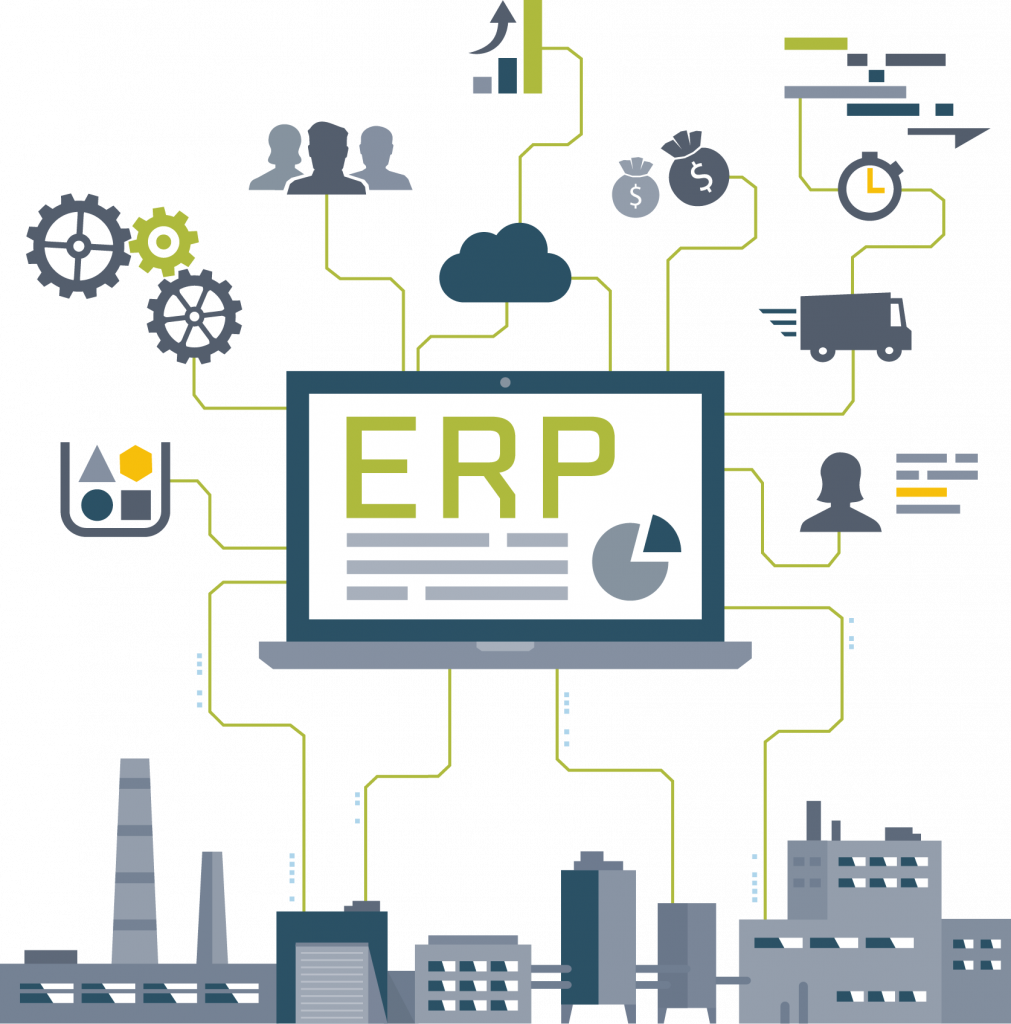What Is Enterprise Resource Planning (ERP)?


Key Takeaways
ERP is critical business software that collects information from various departments in a common database, enabling leaders to monitor the pulse of a company using a single vision of reality.
- ERP systems unify critical business functions like finance, manufacturing, inventory and order management, customer communication, sales and marketing, project management and human resources. One major feature is detailed analytics and reporting on each department.
- ERP can generate major time and financial savings by providing organization-wide visibility that spotlights inefficient manual processes and reveals opportunities for growth.
- There are several deployment models for ERP software, including on-premises, cloud and hybrid. While cloud ERP has become extremely popular in recent years, the best approach for any given company depends on its needs.
- Businesses should make sure they understand the capabilities, implementation models, integration requirements and total cost of ownership of a short list of software providers before picking a winner.


Enterprise Resource Planning (ERP)
Understanding Enterprise Resource Planning (ERP)
You can think of an enterprise resource planning system as the glue that binds together the different computer systems for a large organization. Without an ERP application, each department would have its system optimized for its specific tasks. With ERP software, each department still has its system, but all of the systems can be accessed through one application with one interface.
What Does ERP Do?
How Does It Work?


Benefits of Enterprise Resource Planning
Businesses employ enterprise resource planning (ERP) for various reasons, such as expanding, reducing costs, and improving operations. The benefits sought and realized between companies may differ; however, some are worth noting.
Improves Accuracy and Productivity
Integrating and automating business processes eliminates redundancies and improves accuracy and productivity. In addition, departments with interconnected processes can synchronize work to achieve faster and better outcomes.
Improves Reporting
Some businesses benefit from enhanced real-time data reporting from a single source system. Accurate and complete reporting help companies adequately plan, budget, forecast, and communicate the state of operations to the organization and interested parties, such as shareholders.
Increases Efficiency
ERPs allow businesses to quickly access needed information for clients, vendors, and business partners. This contributes to improved customer and employee satisfaction, quicker response rates, and increased accuracy rates. In addition, associated costs often decrease as the company operates more efficiently.
What Is the Importance of Enterprise Resource Planning?
Enterprise resource planning software offers single-system solutions that integrate processes across the business. These applications allow users to interact within a single interface, share information, and enable cross-functional collaboration. They increase productivity, collaboration, and efficiency.
What Are the 5 Components of ERP?
The components of an ERP system depend on the organization’s needs. However, there are key features that each ERP should include. Generally, packages include finance, human resource, logistics and manufacturing, supply chain management, and customer relationship management.
What Are the Types of ERP?
Generally there are three deployment options for ERP systems; Cloud-based, on-premise, and a hybrid of the two. Within these options, a business can choose from hundreds of types such as finance, supply chain management, and human resource management.
What Are the 2 Main ERP Applications?
Which ones are the main applications depends on the business and the industry it operates in. Most companies can benefit from supply chain management, logistics, and financial applications to help them streamline their operations and expenses.
